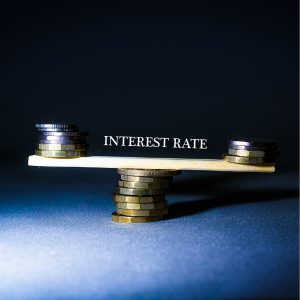For all borrowers one of the key decisions when choosing a mortgage product is whether to choose a variable or fixed rate mortgage. With one lender having recently offered a 0.99% variable rate mortgage it is perhaps worthwhile to look at the pros and cons of the variable rate mortgage.
Variable rate mortgages are tied to the Bank of Canada’s target for the overnight rate which is the Bank’s key tool for influencing the inflation rate. This is one of the Bank’s four main mandates, to maintain a stable and predictable inflation rate in the middle of the one to three percent range. The Bank’s inflation target is therefore two percent.
As of today (January 4th, 2021), the target overnight rate is 0.25% and as a rule of thumb banks add 2.20% to that rate to set their prime rate. This prime rate is the variable rate which they then offer various discounts to. It should be noted that not all banks set their prime rate in the same way so asking the specific number for the prime rate is probably a good idea as your agreements might just reference the bank’s prime rate.
Without getting into the discussion only an economist understands about inflation, we can just accept that the inflation rate in Canada stands at one percent so the overnight rate is extremely low and will not go much lower as the Bank of Canada has continuously provided guidance that they will not lower the rate into negative rates. Recently though, the guidance has been that smaller cuts to the rate than the usual and customary multiples of 0.25% are possible. So it is very possible that we will see a further lowering of the overnight.
Why is inflati on so low? The economy essentially stalled due to the pandemic and spending has ground to a halt. As the economy recovers and inflation begins to move upwards so will the overnight rate as the Bank keeps inflation within the one to three percent range. It should be noted that in January 2020 the target rate was 1.75%. So we have a fair idea of where the target rate and therefore prime rate can go as Canada’s economy strengthens….it is only going up.
on so low? The economy essentially stalled due to the pandemic and spending has ground to a halt. As the economy recovers and inflation begins to move upwards so will the overnight rate as the Bank keeps inflation within the one to three percent range. It should be noted that in January 2020 the target rate was 1.75%. So we have a fair idea of where the target rate and therefore prime rate can go as Canada’s economy strengthens….it is only going up.
When will this happen? According to the Bank of Canada, they do not expect the target rate to begin to climb before 2023, recently the Royal Bank of Canada economists called Q3 2022 as the first upward move of the target rate.
So what does all this mean for borrowers?
1. Very low variable rates available with big discounts to prime are being offered
2. These rates will stay where they are for the next 18 months
3. When they start to move upwards it will be in increments of 0.25%
4. When the rate goes up your payment will go up
5. It is very possible that your variable rate will become higher than a fixed rate
And what does all that mean? Borrowers who choose a variable rate product need to pay attention especially if they have a constrained budget. The silver lining is that if a fixed rate becomes more attractive, the penalty for exiting a variable rate mortgage is three months interest at which time you can move to a fixed rate mortgage.
If you want to forget your mortgage for the next four years and 9 months, choose a fixed rate mortgage. If you are the type who pays attention economic indicators : variable rate mortgages are extremely attractive today.
